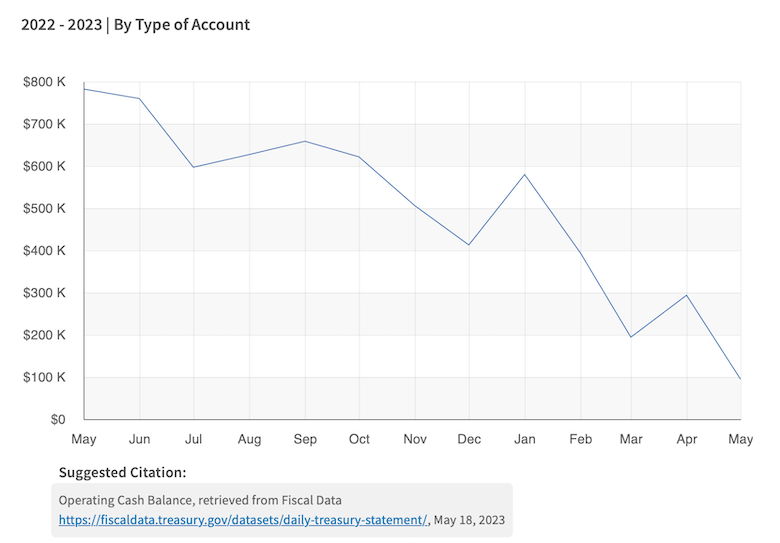The deal to raise the debt ceiling has passed both houses of congress with bipartisan support and will be signed into law by president Biden on Saturday, two days before the projected X-date (June 5th) when treasury secretary Janet Yellen said the government will run out of money to pay its bills. As of Thursday evening, the closing balance in the government’s account was just $22.892 billion, the lowest it has been since the recent crisis started.
The current debt ceiling limit is $31.4 trillion which has already been reached. The deal did not raise the ceiling by a fixed amount. Instead it agreed to suspend the debt ceiling until January 2025, just after the next election. As I understand it, ‘suspension’ means that there is no debt ceiling at the moment so it is possible that the US treasury could, in theory at least, run up the debt by a huge amount by selling off US treasury bills.
But I don’t think they will do that.

